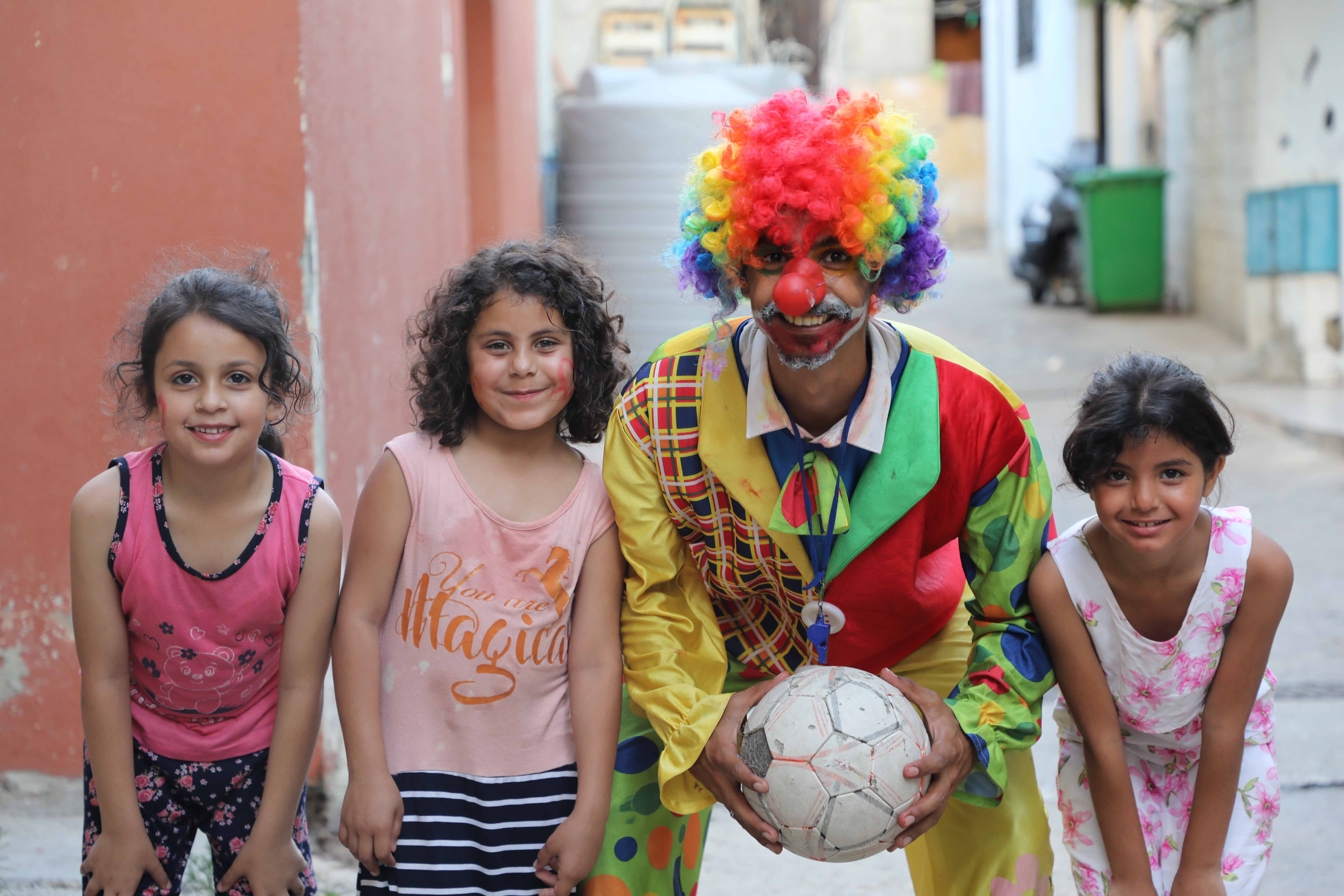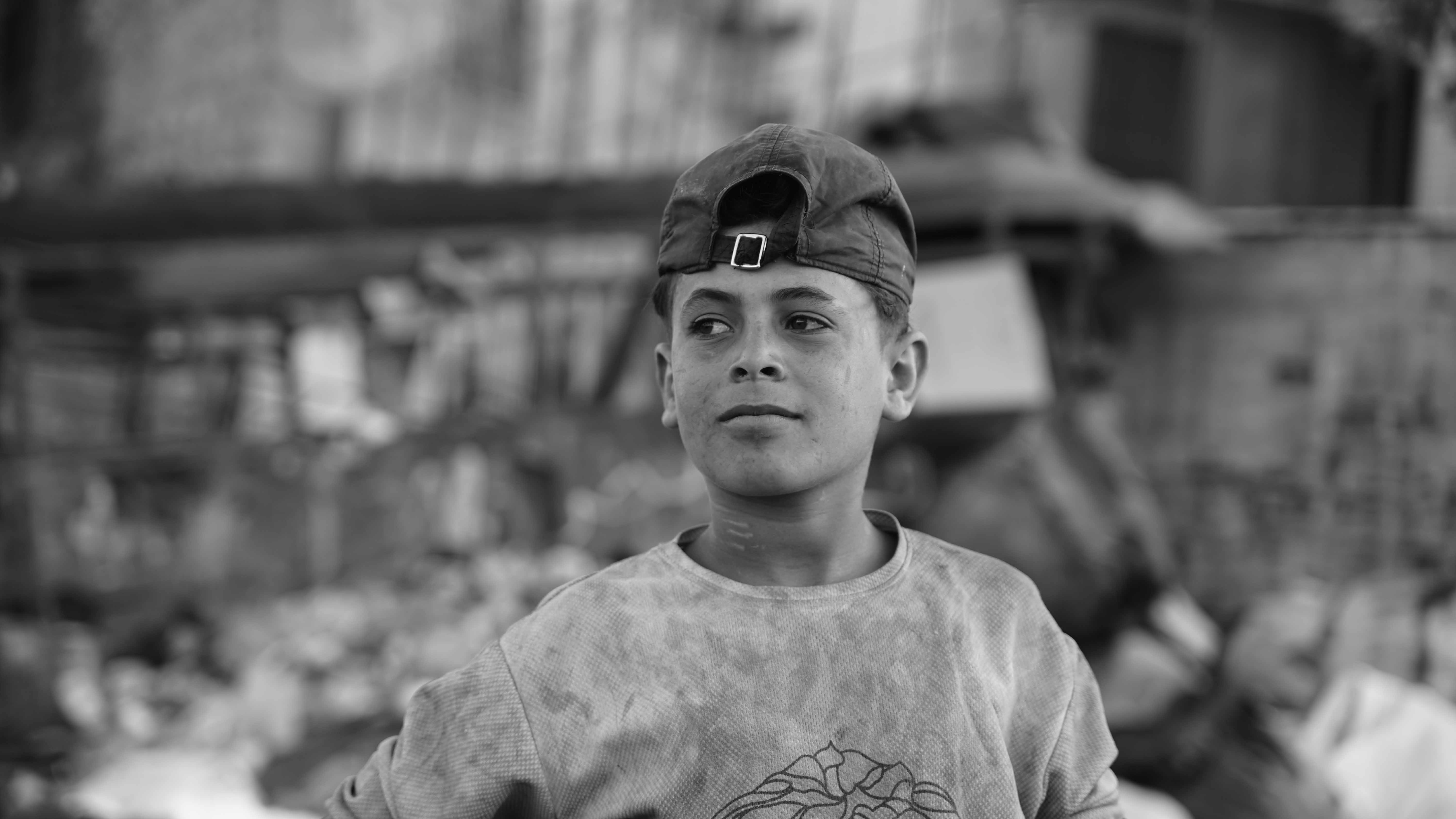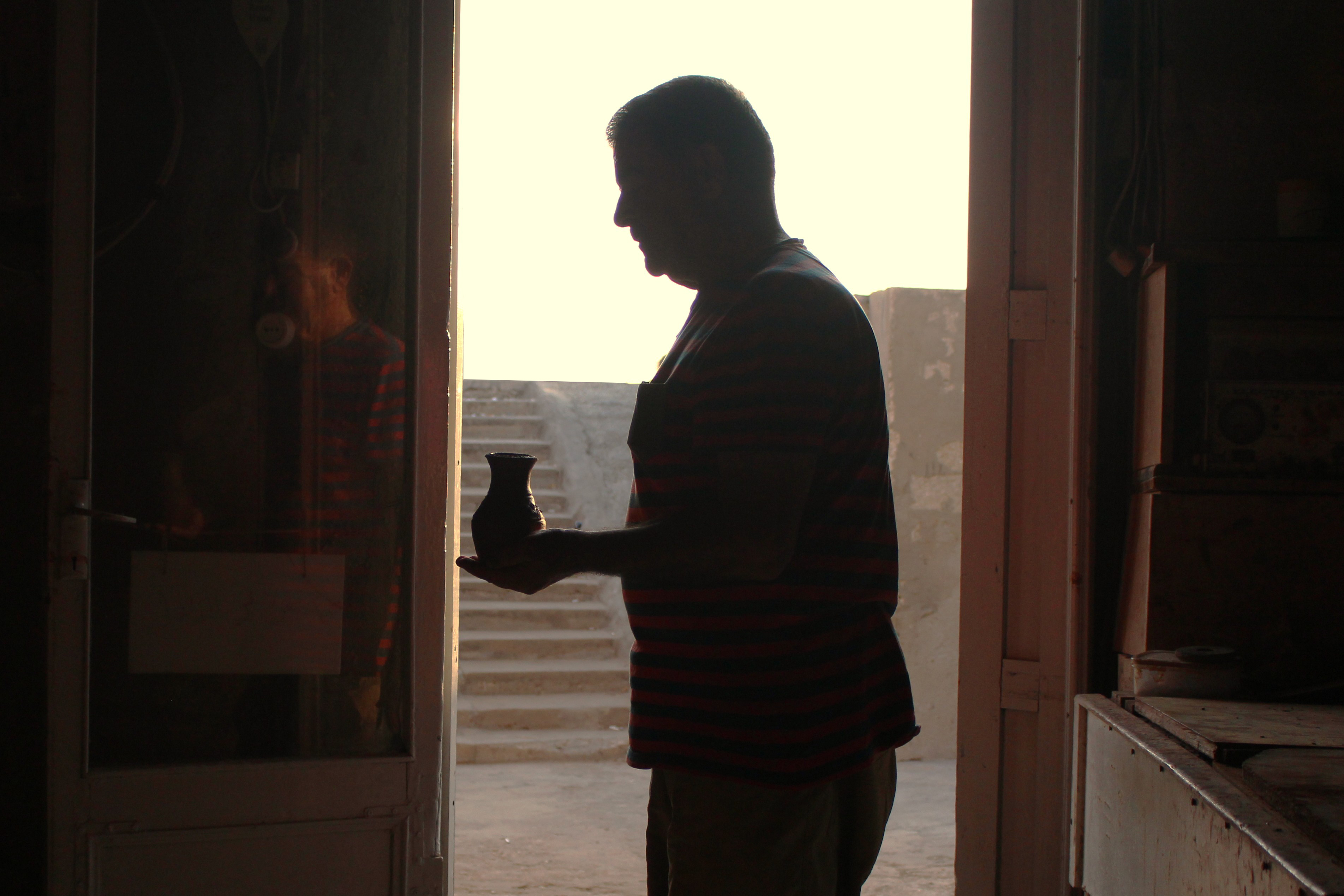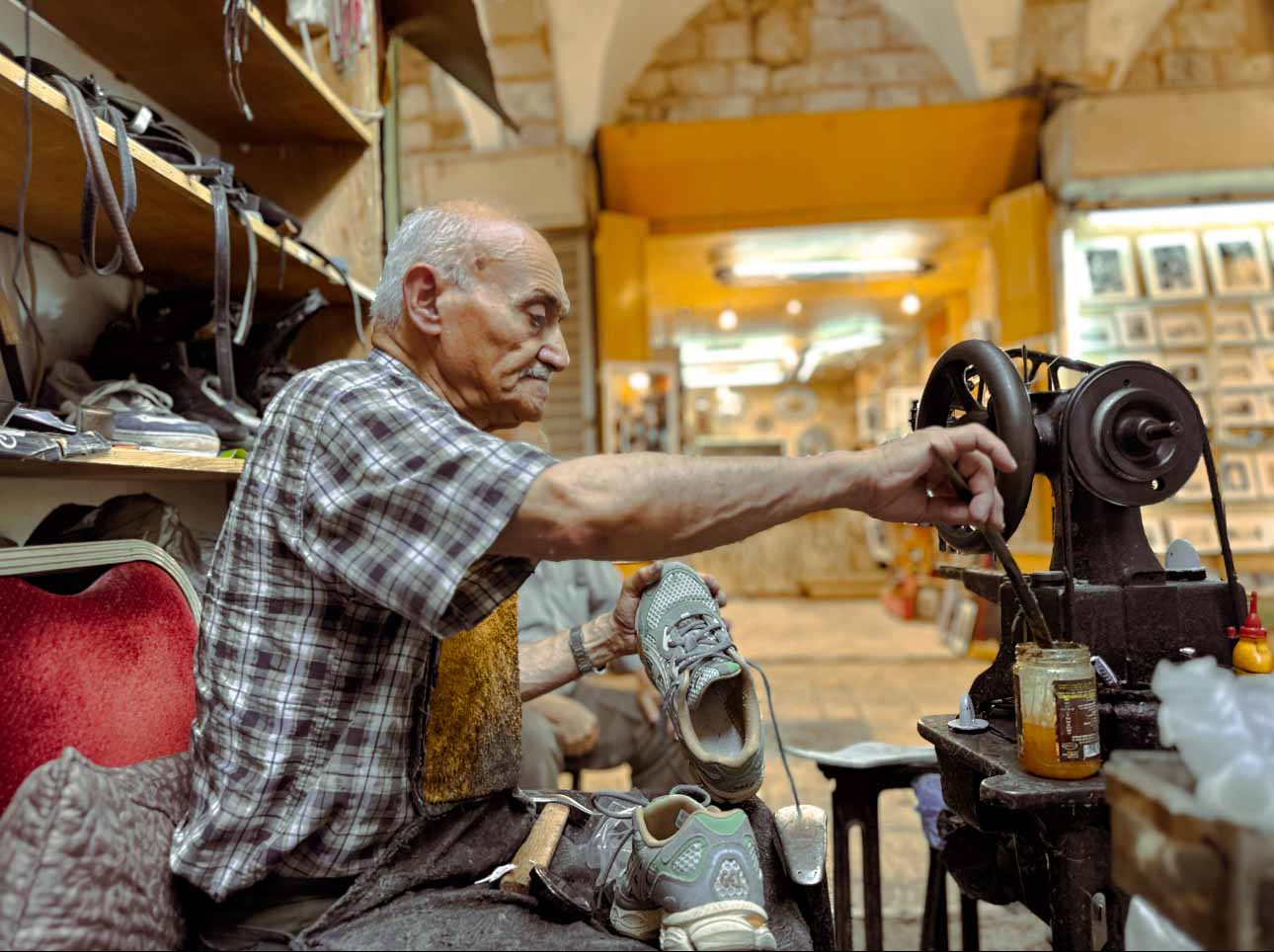Amid the narrow alleys of Rashidieh camp in southern Lebanon walks Mahmoud Muflih, known to everyone as “the Clown of Rashidieh.” A young Palestinian from the village of al-Bassa, in the district of Acre, he found in theater a space to breathe within a reality that grows tighter every day.
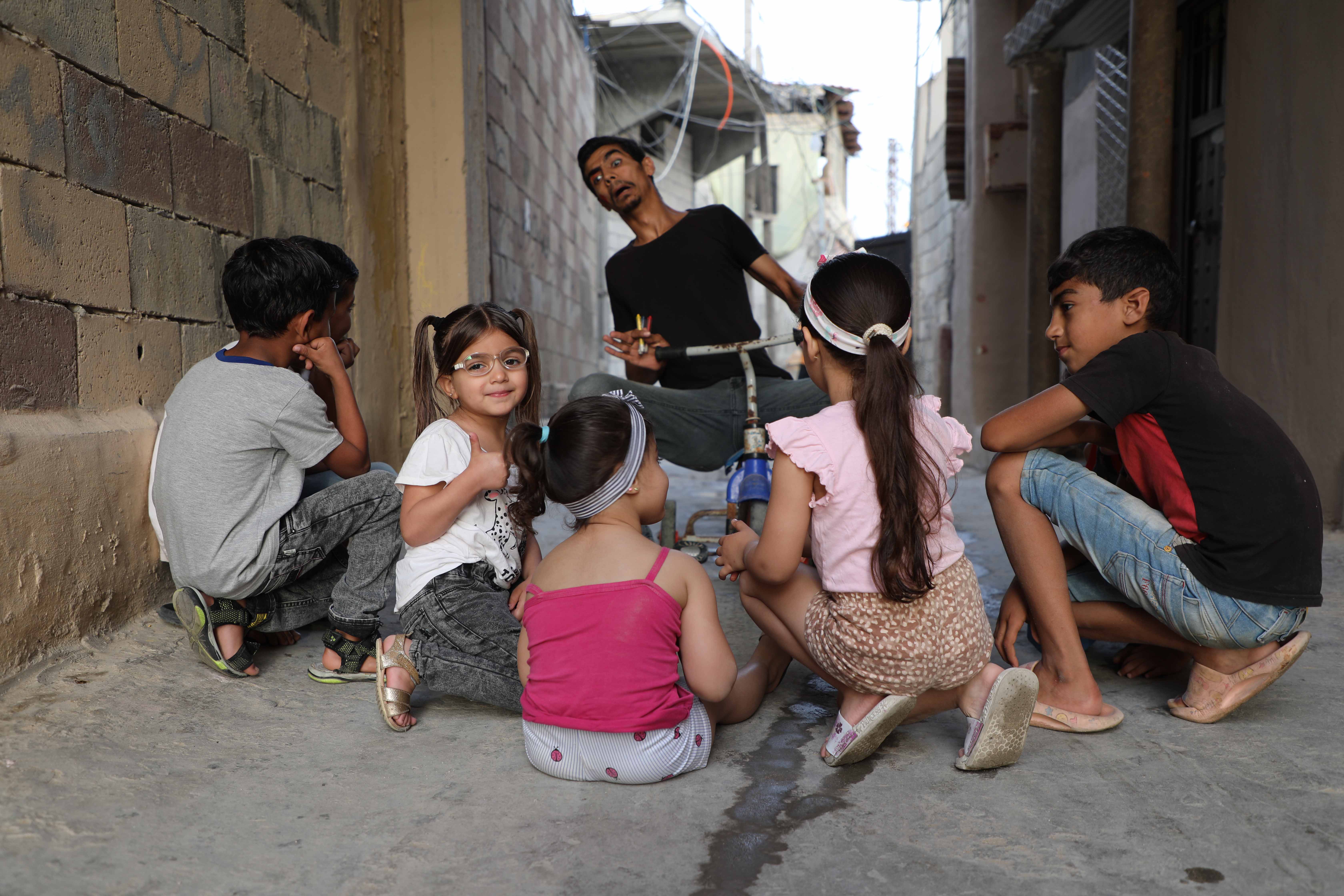
In the mornings, Mahmoud cuts and sells firewood to make a living. But as the sun sets, he transforms into an entirely different character — a clown with a small bag of paint, weaving lightly through the camp’s alleys, bringing them to life with his interactive performances. Children gather around him, joining in play and laughter. “The camp needs a breathing space, a moment of genuine laughter amid all this suffering,” Mahmoud says.
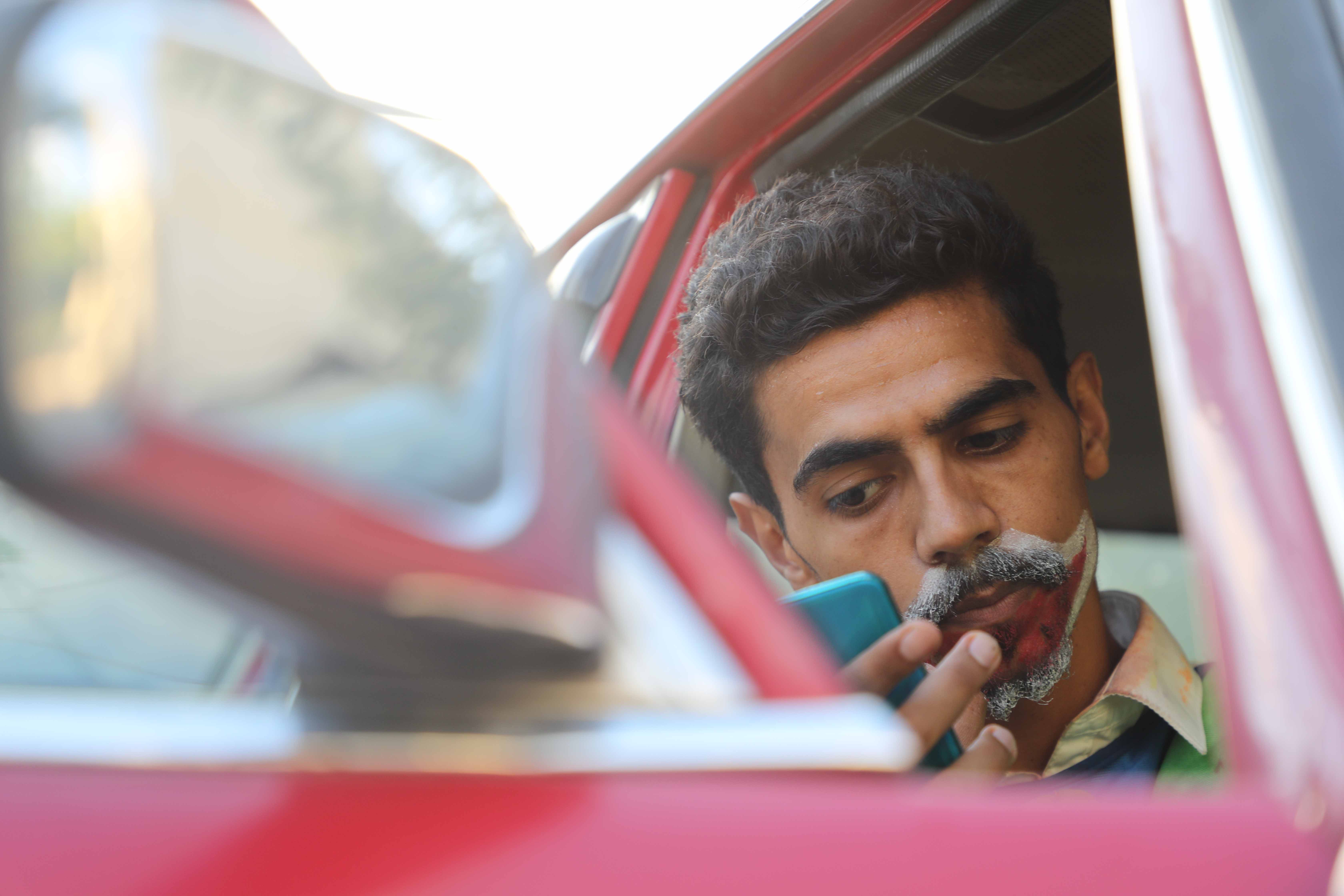
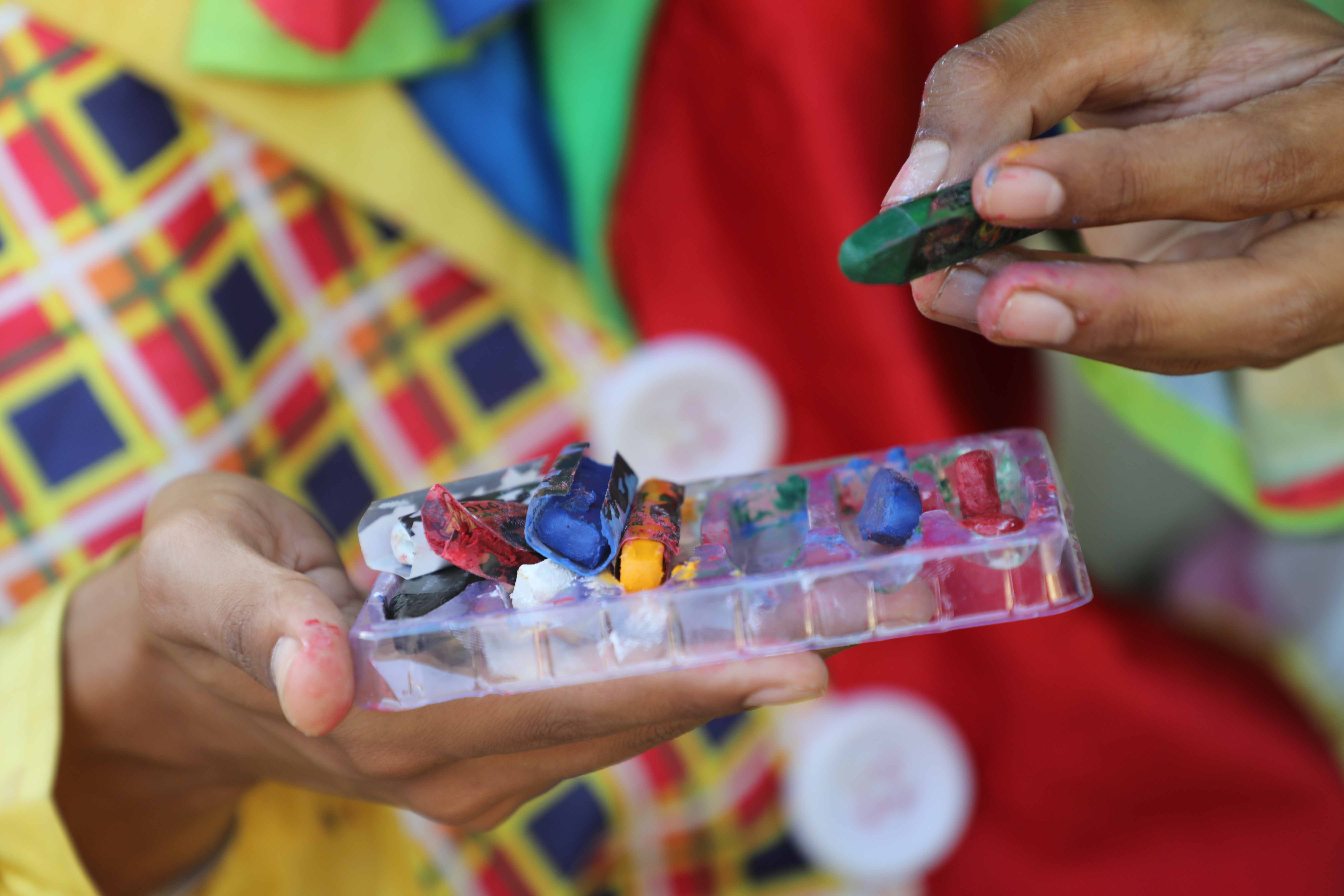
Mahmoud dreams of entering the world of cinema, but opportunities are limited to Beirut and other more central areas. Despite moving from one job to another and relying on his own resources, he has turned the alleys of the camp into an alternative theater, where he is the hero and the children are his audience.
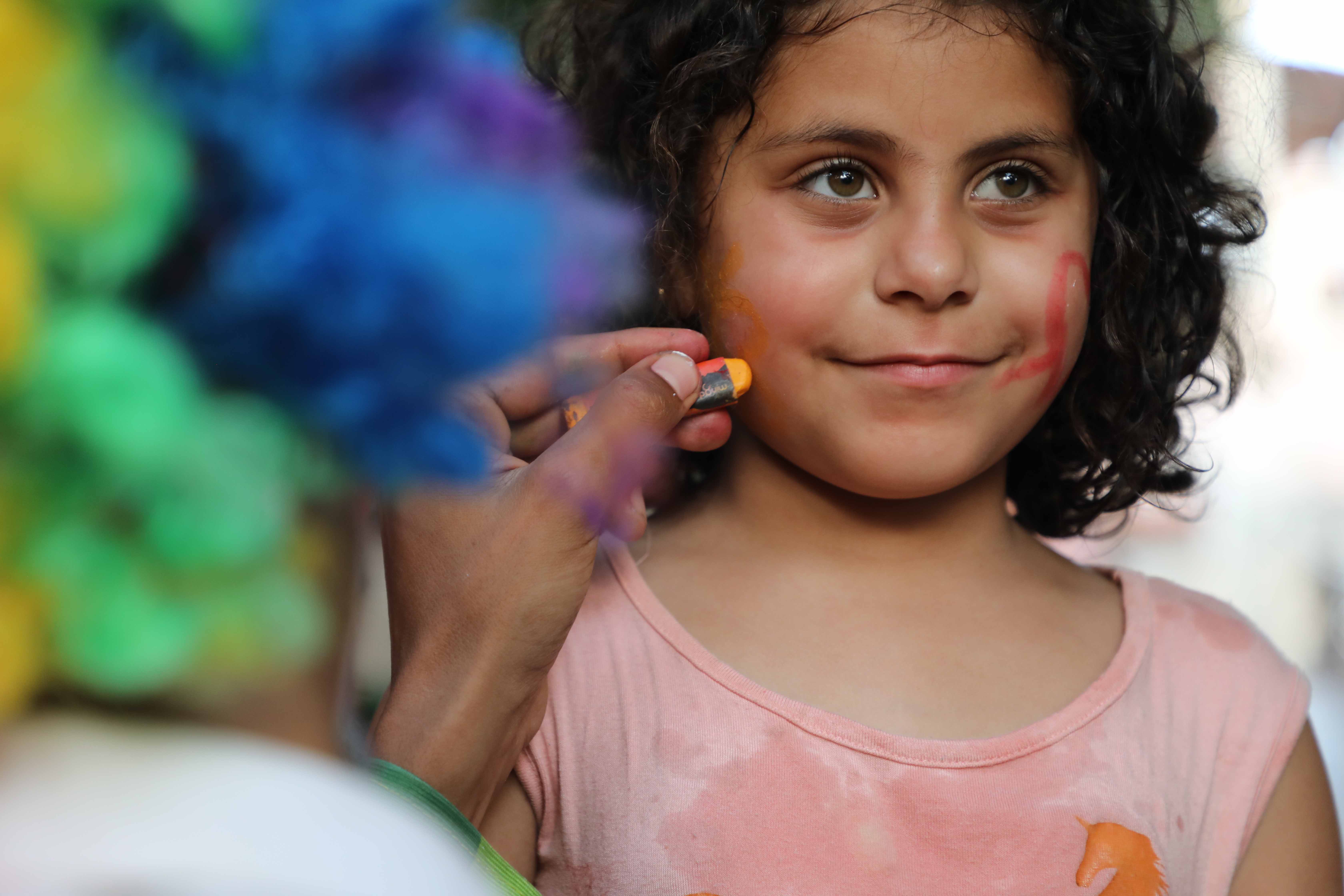
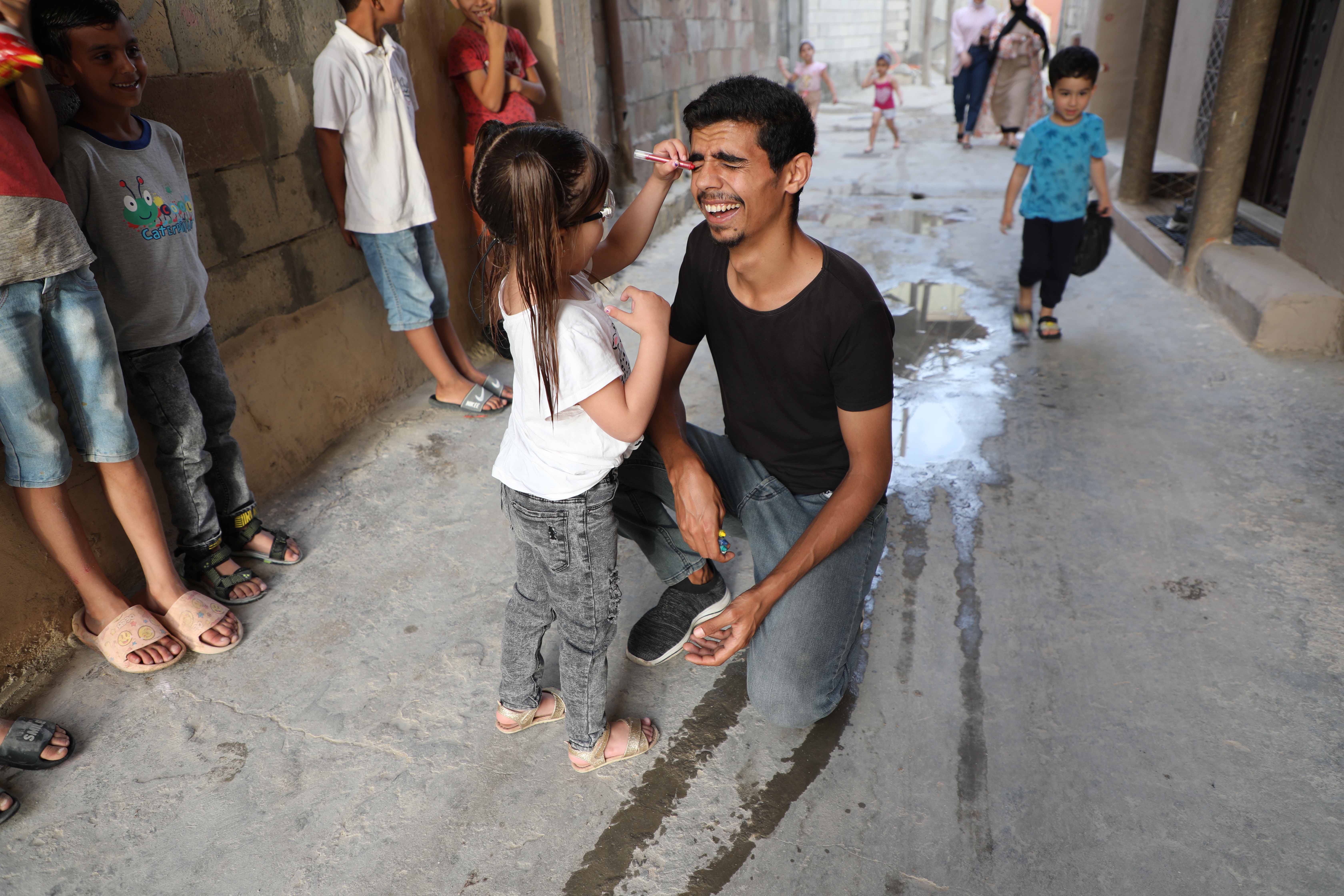
“The theater is the only place that gives me a real chance to influence, to make people laugh, to grieve, to say something meaningful to this world,” he says, adding: “I’m not presenting something strange or imposed from outside — I’m telling stories everyone knows, but in a louder voice.”
